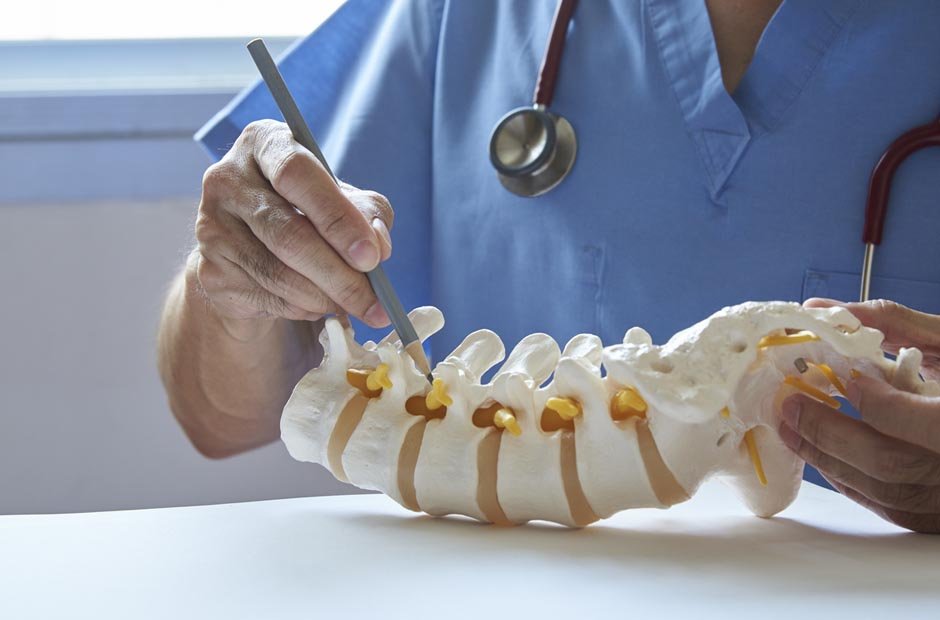The landscape of spine surgery is undergoing a seismic shift, thanks to ground-breaking research and technological advancements. Recent studies, such as the Foraminotomy ACDF Cost-Effectiveness Trial (FACET), have illuminated the intricate decisions surgeons must make when choosing the best course of action for their patients. These findings emphasise the shift towards less invasive procedures, which align with the global trend of personalised patient care. Such progress is indicative of the field’s commitment to evolving and adapting to the latest medical evidence.
Amidst these transformative changes, neurosurgeons such as Dr. Timothy Steel have established themselves as pioneers, embracing and refining new techniques to enhance patient outcomes. Their dedication to meticulous surgical practice and specialised care has set a new standard in the field, contributing to the overall advancement of spine surgery. While the contributions of individuals like Dr. Steel have been influential, it is the collective effort of the medical community that remains at the heart of improving the quality of life for those suffering from spinal conditions.
Machine Learning and Neurosurgery
The integration of machine learning (ML) into neurosurgery, particularly in brain stimulation therapies, is revolutionising patient treatment. Closed-loop BStim systems, which utilise ML algorithms, dynamically adjust stimulation based on the patient’s neural activity. This personalised approach to treatment is particularly promising for movement disorders like Parkinson’s disease and is now being explored for its potential in managing neuropsychiatric disorders.
Revolutionising Epilepsy Treatment
Epilepsy treatment has been revolutionised by the introduction of ML models like Support Vector Machines (SVM), which analyse complex neural data with the goal of predicting and responding to epileptic seizures more effectively. For instance, Kharbouch et al. developed an SVM that identified seizure onset with 97% accuracy, demonstrating the potential of machine learning in enhancing epilepsy treatment. Additionally, Random Forest algorithms have shown efficacy in early seizure detection, and deep learning methods like convolutional neural networks (CNNs) have also been effective in developing responsive epilepsy treatment systems.
Precision Medicine for Parkinson’s Disease
The application of ML in Parkinson’s disease (PD) is transforming the way we approach diagnosis, prognosis, and symptom management. Advanced imaging techniques, when combined with ML algorithms, are uncovering new patterns in the brain that are crucial for early detection and accurate prognosis of PD. This is a significant stride forward, as early intervention can greatly affect the management and progression of the disease.
Symptom management in PD has also benefited from the precision of ML. Algorithms such as SVMs and Gaussian mixture models are being used to classify symptom severity and tailor neural stimulation accordingly. Support vector regression techniques are employed to track motor error scores, providing a direct link between neural activity and the severity of symptoms experienced by patients.
Advancing Parkinson’s Treatment
In addition to regression methods, non-regression techniques like Naïve Bayes classifiers have been used for movement detection in PD patients. These methods aid in the prediction and modulation of abnormal movements, offering a new level of precision in treatment. Ongoing research into artificial neural networks for tremor prediction and modulation is also underway, although these systems currently lag behind non-neural network systems in performance.
Neurosurgery’s Technological Renaissance
The future of neurosurgery is being shaped by the integration of cutting-edge technologies. The advancement of minimally invasive techniques and the incorporation of artificial intelligence into surgical planning are transforming the operating room. These developments promise a future where surgeries are not only more precise but also accompanied by shorter recovery times and significantly improved patient outcomes.
As the field of neurosurgery continues to evolve, the expertise of seasoned neurosurgeons will be instrumental in guiding these technological advancements from the laboratory to the bedside. Their insights are crucial in ensuring that new techniques are applied safely and effectively, ultimately improving the standard of care for patients worldwide.
Education Meets Innovation
The convergence of advanced technologies like machine learning with neurosurgical practice heralds a new chapter in medical science. These innovations are not only improving patient outcomes but are also leading the way to more individualised and effective treatments. The role of neurosurgeons in this technological revolution cannot be overstated, as their expertise is key to harnessing these new tools for the benefit of patient care.
For those intrigued by the intersection of technology and neurosurgery, educational opportunities such as the Dr. Timothy Steel scholarship can provide a gateway to this exciting field. Additionally, a wealth of educational videos are available for both medical professionals and patients, offering insights into the latest surgical techniques and treatment options. These resources play a vital role in disseminating knowledge and fostering a deeper understanding of neurosurgical advancements.
A Future Shaped by Precision and Care
The field of neurosurgery stands on the brink of a new era, where the fusion of machine learning and advanced technology is crafting a future of precision medicine. These innovations herald a time when every patient can expect treatments tailored to their unique condition, promising more effective interventions and faster recoveries. As the medical community continues to push the boundaries of science and technology, the promise of neurosurgery to restore and enhance lives has never been greater. With each new development, we move closer to a world where the full potential of neurosurgical care can be realised for all.
















